HBO’s ‘Last Call’ Director Almost Passed on the True Crime Docuseries: ‘My Biggest Concern Was Re-Victimizing the Queer Community’
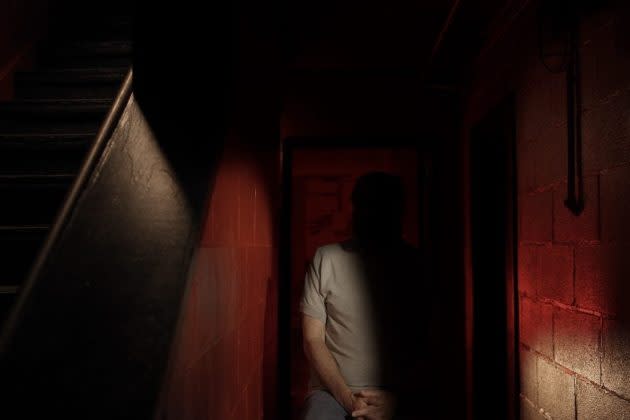
When director Anthony Caronna was pitched with making a series out of Elon Green’s 2021 book “Last Call,” about a string of queer-targeted murders in 1990’s Manhattan, he had some reservations.
“I loved the book,” said Caronna. “But I passed on the project because I wasn’t interested at that time in doing true crime. My biggest concern was re-victimizing the community and possibly working against the community in a way.”
More from Variety
True crime media is a true mixed bag. Each documentary, docuseries or podcast sits somewhere on a spectrum of educational and entertaining; while the latter might sound like a jarring way to describe the storytelling of real-life criminals and real-life victims, it’s not incorrect to say that some audiences find sensationalized crime stories enticing.
So, before Caronna ended up taking on the pitch and directing HBO’s four-part docuseries “Last Call: When a Serial Killer Stalked Queer New York,” he and executive producer Howard Gertler had to figure out how they could make a show that wouldn’t serve to entertain true crime junkies ready to dissect a serial killer or perform some act of gotcha journalism.
Instead, both Caronna and Gertler wanted to highlight the victims, including Peter Anderson, Thomas Mulcahy, Michael Sakara, Anthony Marrero and their loved ones.
“When we took a look at the stories of the victims, they led incredibly rich, very complicated lives. And in terms of TV — that’s drama,” said Gertler.
Along with filmmaking power-couple Liz Garbus and Dan Cogan of Story Syndicate, they were able to create an earnest and well-rounded exposé of New York queer culture in the 1990s and the violence that plagued it.
In an interview with Variety, Gertler and Caronna discussed the filmmaking process behind “Last Call,” which premiered July 9 with new episodes following weekly, and how they worked to protect every one involved — including themselves.
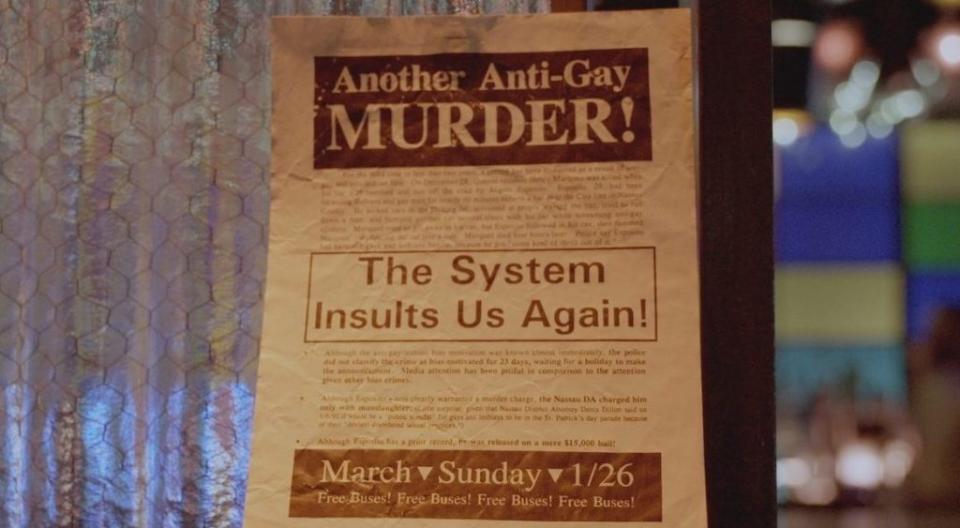
How did you both get involved with the project — taking a book that was so well received and recreating it in a different medium?
Howard Gertler: It started when Liz Garbus and Dan Cogan at Story Syndicate sent me the book. It was in galley form, pre-pub, and they’re like, “We think maybe there’s something here. What do you think?” And I had made “How to Survive a Plague” with Dan, so we sort of had a long-standing relationship there. So I took a look at the book and I felt like there was a unique opportunity to tell the story that sat at a very unique intersection of queer history. There was also a unique opportunity to tell the story of anti-violence as it related to queer life in the early nineties. So it was at that point that I approached Anthony.
Anthony Caronna: I went to dinner with Howard and he was like, “I’m thinking about working on this project called ‘Last Call.’” And I was like, “Shut up, no way.” Because a year before that, I had gotten the unpublished version of the book, just from a different company and they asked me if I would consider directing something. I want to say it was a series. I loved the book, but I passed on the project because I wasn’t interested at that time in doing true crime. My biggest concern was re-victimizing the community and possibly working against the community in a way. So when I went to dinner with Howard and he was thinking about doing something with Liz Garbus and Dan Cogan, hearing both those names, I was like, “Oh, my God.” And Howard said that when he was reading it, he thought that there maybe a larger social justice conversation or activist story there. So I reread it and kept thinking about it through that lens. It immediately became pretty clear to me that if Howard felt that way — and he was the person that was bringing me this — that we could do it together and make something that would be important about the social justice conversation in the queer violence movement.
Gertler: Liz had made “I’ll Be Gone in the Dark” which was kind of our touchstone for how we approached telling a story, about vextreme violence and the way it affects individuals and what it says about our society. Liz and Kate Barry, one of our executive producers, at Story Syndicate, were so involved in shaping that show. They did it so brilliantly. So we knew we were going to be in really good hands with them guiding us creatively and, from a production point of view, figuring out how to crack it.
While watching the series, I couldn’t help but think of a show like “Dahmer – Monster: The Jeffrey Dahmer Story,” which took a queer crime story and presented a sensationalized version by focusing on the criminal. “Last Call” really was not like that. So what do you think of shows like “Dahmer” in comparison to your series?
Gertler: We know that there’s other programming out there that we can’t really speak to, but I think what was baked into our approach was who we are as people and how we wanted to shape it. When we were talking to HBO, we set some parameters from the very beginning — as Anthony was saying, to not re-traumatize the family members, victims and the community.
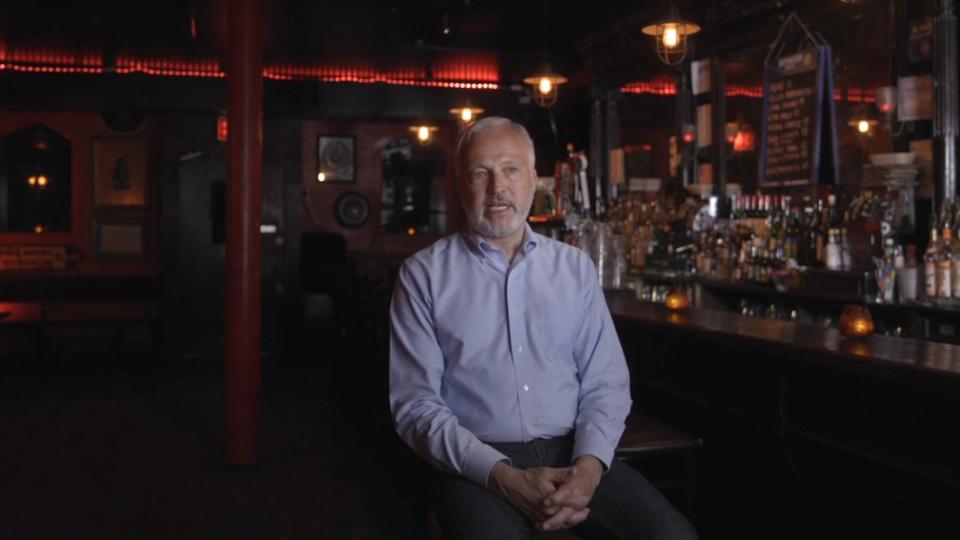
How did you decide to structure the show — leaving Rogers’ identity to be revealed toward the end — rather than starting with him being caught and being found guilty?
Caronna: Similar to what Howard just said, a lot of those shows do focus on the perpetrator. We came at it with not wanting to necessarily focus on that and to let the queer community speak for itself and drive the narrative of the entire series. We wanted victims, family members and friends, the larger community and the anti-violence project to really lead the narrative of all four episodes. So by the time we get to four, we’re seeing who Richard Rogers is through the lens of all these people that have just wanted to see him caught. He was just never the thing that we wanted to focus on. I never really had a great interest, personally, in focusing on the perpetrator.
Gertler: When we look at them, it’s almost like a prismatic view of 20th century queer life, 20th century gay life — whether they were closeted, semi-closeted, sex workers or just everyday out gay people like Michael Sakara. It really covered the gamut of the aspirations and struggles for gay men during that time period. We were really privileged to be able to tell that story.
Rogers is still alive. Was interviewing him or trying to reach out even a question for you guys?
Caronna: Well, I mean, it was a question. We definitely talked about it at the start. We reached out to see if it would be anything that he would ever consider and we never heard from him. But it became very clear when we started to form the story that it was not anything that we wanted to do. So we just sort of dropped it and never reached out to him again. We didn’t really have a place for him in the show.
Gertler: But we did want to give him an opportunity to speak because if he had something to say, we wanted to hear it. No question, some of the family members of the victims were curious if he had anything to say.
When it came to speaking with victims, family members and friends, how did they react when you first reached out to them? How involved did they become in the storytelling process?
Caronna: They were nervous about the possibility of the show going in a very different direction. But once we sat down with each of them, we sort of let our intent be known. We let them know that they would be really steering the conversation. So, slowly but surely, they all sort of started to open up to the idea and they sat down with us. Almost all of them felt like every interview — which was a huge blessing — ended with them feeling a sense of catharsis. It was actually really beautiful.
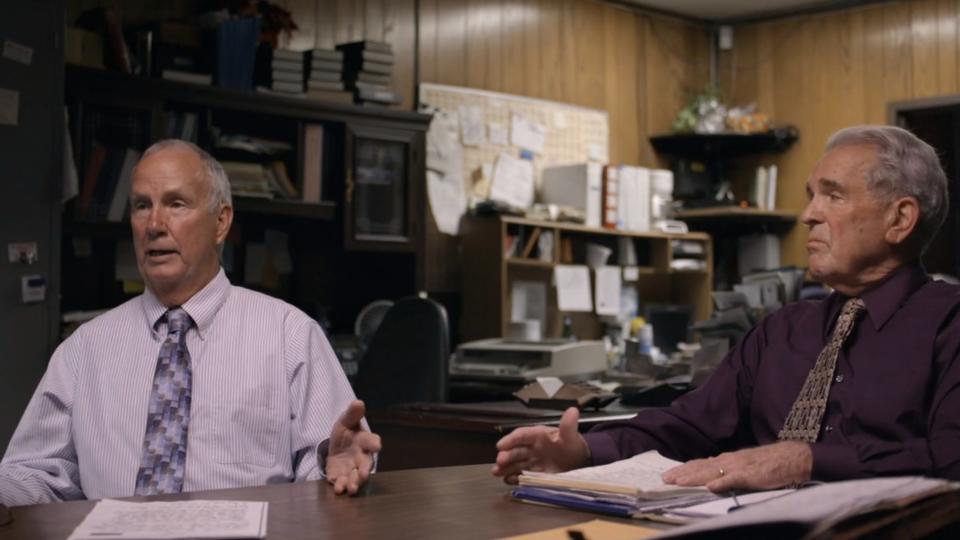
What were the interviews like? Was it hard talking to somebody like the members of Anthony Marrero’s family who didn’t really want to accept that a loved one was gay? Or even the law enforcement who felt like it was a touchy subject? How did you work around that?
Gertler: We always were humbled to be let into the homes of these people to film them. You know, you’re asking a lot of trust from them. It requires a lot of patience and generosity from us, as well, to let them tell their stories and their perspectives on it. Obviously, Antonio, the great nephew, was very happy to talk about a multitude of subjects. But some of the other family members maybe felt less comfortable. We didn’t want to heighten their discomfort by our presence or filming. We just wanted to tell the story. The things that those certain family members were grappling with on camera are things that families all over this country, all over this world, grapple with. It’s probably a very familiar thing. So we wanted to show that family in that respect as something that hopefully other people would find relatable and maybe even helpful in some ways.
Caronna: With the investigators, somewhat similar to what Howard was saying, we weren’t trying to do some sort of gotcha journalism. We were really just having conversations. Before we had really sat down for any interviews, Elon Green [the author of the book that inspired the show] had shared a lot of the conversations that he had had with people, including his audio interviews. Having lived a queer life, and reading and listening and hearing all these interviews, it became clear that there were some awareness gaps within the investigation, just culturally. That’s what happens when you’re not a part of a culture.
Was there any fear of receiving backlash from either police departments or officers that you criticize?
Caronna: There’s always a worry of backlash, but our intent was never to get something over on anyone. We just let them talk. What you see on screen is really just, what they said very honestly, and I’m very thankful that they sat down and were so honest with us. There’s a vague fear of backlash, but it’s not something I was too concerned about because I think what we watch on screen in all four episodes is a very honest account of what it was like to sit down and have those conversations.
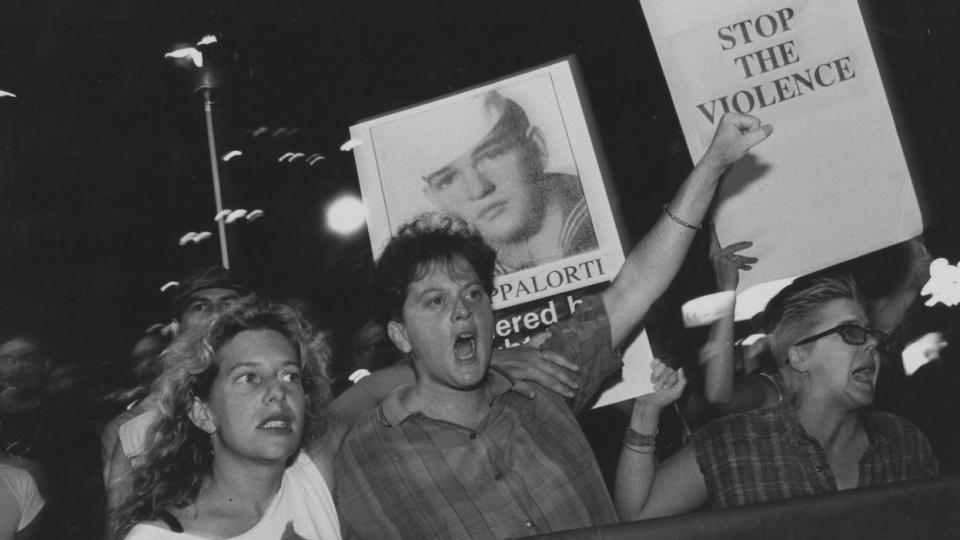
At the end of the series, there are clips of politicians talking about laws being passed against queer people, along with an uptick in violence against queer individuals. Was this sort of a before-the-fact or after-the-fact reason that made you want to make this series now?
Gertler: Definitely before the fact. In fact, in our initial conversations, we were thinking, like, “Okay, obviously we’re seeing other iterations of anti-queer violence today, especially violent language and laws that are attacking trans people, which is incredibly urgent right now. How do we use this story to also put a spotlight on that?” So it was never an afterthought. It was something that was always on our mind, like, “How are we going to talk about it?”
First we needed to make the show and then we could figure out what kind of material and context to add into the body of the show. Some of those events were unfolding while we were in production, like the drugging of gay men in bars in midtown. We’re also doing an impact campaign and there will be a screening toolkit available to communities and educators to help talk about some of the issues that come up. Our historical consultant, Nikita Shepherd, has been working on that with input from the anti-violence project. And there’s a resource page that comes up before and maybe at the end of the show, directing people if they want to learn more, or if they need help connecting with those kinds of organizations and resources. It was something that was always built into the architecture of the show. It was just figuring out the best way to do it.
Were there any stories that you discovered while doing the research and interviews that you’d like to explore in other projects going forward?
Caronna: We were talking about this today on the podcast, actually. (HBO has released a companion podcast to “Last Call.”) There were so many cases of anti-queer violence that we learned about and horrific events throughout history from the 1970s to the 1990s that it’s impossible to count the numbers of victims and events over the past 40 years. There’s a ton of incredible stories that highlight exactly what we’re trying to get at in “Last Call” and deserve as big a spotlight, but I don’t know that I’d be eager to jump into another exploration of what we just did. It was quite heavy for me.
How did you protect yourselves while making it?
Caronna: Another conversation we had today on the podcast! While the doc is very serious, I’m a pretty boisterous, funny, jokey person. When we weren’t on set and when we didn’t have to be laser focused — which we were most of the time — we were very joyful and funny, and we all uplifted each other up over the past two years. Whether it’s making somebody laugh in a small editing bay or in a big conference room, we really looked out for each other. In many ways, the buoyancy of our group allowed for there to be a lot of mental health checks and breaks. Everybody was really just taking care of each other.
Best of Variety
Sign up for Variety’s Newsletter. For the latest news, follow us on Facebook, Twitter, and Instagram.


